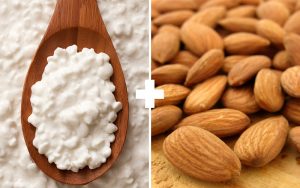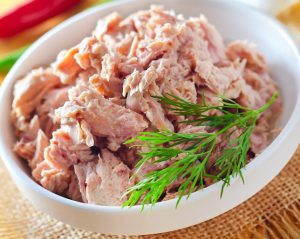By Anthoney J. Andersen – Steroidal.com
You might have heard that eating right before bed is not good for your body, and can pack on unwanted fat.
But is this really the case, or an age-old myth?
Inexperienced dieters commonly believe that anything consumed in the hours right before bed goes directly to body fat storage. Sounds like a nightmare for your physique, right? Wrong.
The real nightmare is going to bed hungry, waking up with minimal energy, and wonder why you feel burned out, despite being disciplined.
Let’s take a look at what really happens to our bodies as we sleep, and the potential benefits that can come from eating the right foods just before bed.
THE SCIENCE BEHIND IT
We’ll start things off by saying that your metabolism never fully shuts down, even overnight. Eating too many calories or bad foods before bed adds fat to your frame, but not all nocturnal snacking generates extra body fat.
Our muscles – which are built from amino acids supplied by protein – repair themselves and grow while we sleep. Growth hormone – which boosts muscle growth, while decreasing fat – is elevated during this time.
According to Mensfitness.com, your body is primed to build muscle two times a day: right after your workout, and during deep sleep. With the right meal before bed, you can become stronger as you doze.
Your body releases its biggest surge of growth hormone during REM sleep. Studies have shown that if you consume an ample amount of protein before bed, you’ll take full advantage of the spike, and create greater muscle gains.
Also, your muscles will soak up protein through the night, so you won’t go into “hunger” mode (where your body can break down muscle) as quickly.
The first study, published in ‘Medicine & Science and Sports & Exercise’ in 2012, had 16 healthy young males perform a single bout of weightlifting in the evening. All subjects were provided with 20 grams of protein immediately after exercise.
Thirty minutes before sleep, eight of the men ingested a beverage with 40 grams of casein, a slow-release protein. Muscle protein synthesis rates were increased in the eight men who consumed the casein beverage before bed, which provided evidence that protein increases post-exercise overnight recovery.
According to Healthline.com, the latest study, published in the ‘Journal of Nutrition’ in 2015, monitored 44 young men, as they completed a 12-week resistance training program. All participants consumed a high-protein diet (1.3 grams of protein per kilogram of body weight), but one group consumed a drink before bed containing 27.5 grams of protein and 15 grams of carbohydrates while the other group received a placebo drink.
The group who consumed the protein drink saw greater improvements in muscle growth, muscle size, and muscle fiber size. This means that the protein ingested before bed was effectively absorbed and digested – stimulating growth in the muscles.
WHAT FOODS OR BEVERAGES SHOULD YOU CONSUME BEFORE BED?
It is recommended by nutrition experts that the best forms of protein to consume before bed is a slow-digesting form of protein, such as chicken or turkey, or low-fat cottage cheese with pineapple chunks and an ounce of almonds for healthy fats to help slow digestion further.
COTTAGE CHEESE AND ALMONDS
Cottage cheese has been relegated down the protein list as of late, largely due to the popularity of Greek yogurt, but it’s still one of the most effective and convenient sources of protein around. Packed with both whey and casein forms of the muscle-building macronutrient, cottage cheese should be on the grocery list of anyone who craves variety in their protein.

Almonds will not only provide you with all-important healthy fats, but they will also provide repletion and help slow the digestion of protein, which will help create a trickle-like effect of amino acids. This will help as you sleep since your food intake halts and you are only left with the remaining food from your last meal.
Macros for 1 cup of low-fat cottage cheese and 1 ounce of almonds:
- • Calories: 327
- • Protein: 34g
- • Carbs: 11g
- • Fat: 16g
CASEIN AND FLAX
If you prefer drinking your bedtime snack, then give casein a try. Casein protein powder provides a slow digesting form of protein, so you will get a slow release of amino acids to last you through the night. This is evident when you mix the powder in water as it requires thorough mixing/blending to completely dissolve.
It should be noted that because it digests quickly, whey protein powder is not the best choice right before bed. For even greater gains, consider mixing in five grams of creatine, BCAAs and glutamine. You can add them to your shake separately or get them all in one product.
Flaxseed oil is another healthy fat – again – used for repletion and further slowing the digestion of protein powder. It also contains some pretty impressive health benefits such as decreasing inflammation (for example, it can be used to help with rheumatoid arthritis) and lowering cholesterol. Simply add flaxseed oil to your casein protein shake.
Macros for 1 scoop (28 grams) of casein protein powder and 1 tablespoon of flaxseed oil:
- • Calories: 221
- • Protein: 20g
- • Carbs: 3g
- • Fat: 2g
CANNED TUNA
Making a meal doesn’t get any easier than cracking open a can of tuna. While it’s important to consider mercury levels in any fish you eat, the protein content of canned tuna is rich enough to fuel any active person’s muscles before bed.

- • Calories: 100
- • Protein: 22g
- • Carbs: 0g
- • Fat: 0g
THE TAKEAWAY
Whether you eat before bed or not boils down to your personal preference and the rest of your diet, as well as your calorie intake for the day. However, if you find yourself getting cravings late at night, then having a healthy pre-bed meal to look forward to can stop you from unnecessarily snacking.







